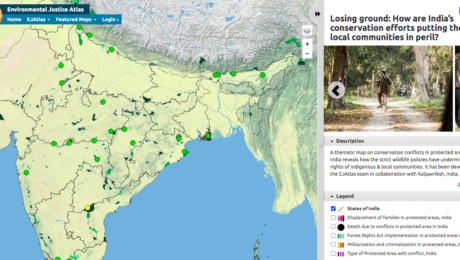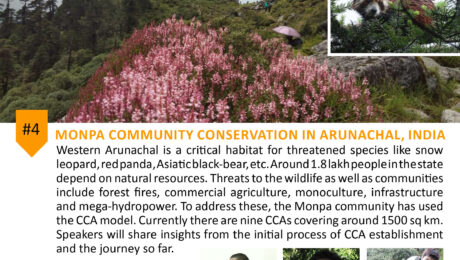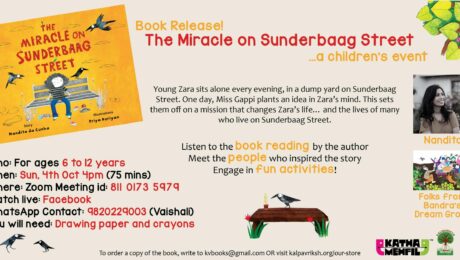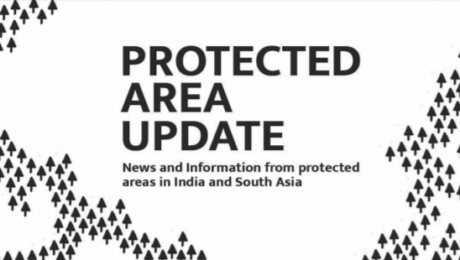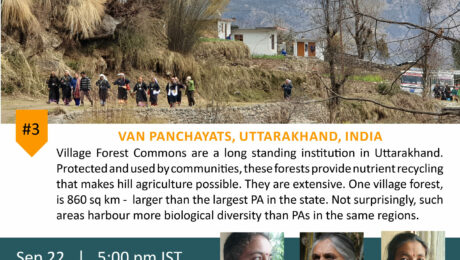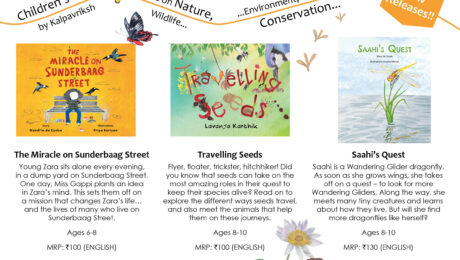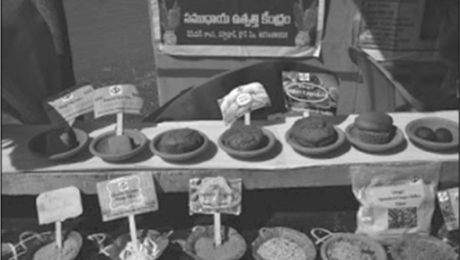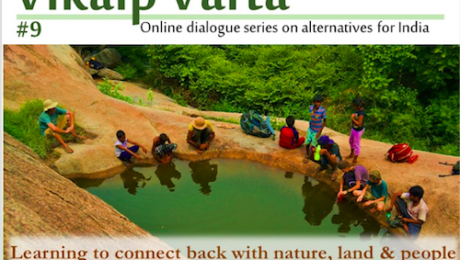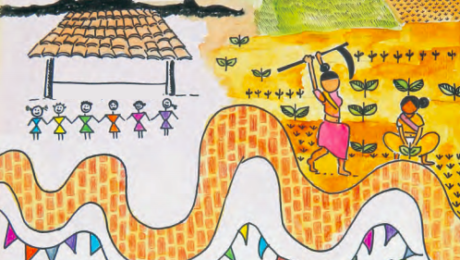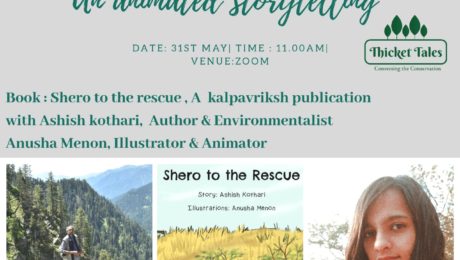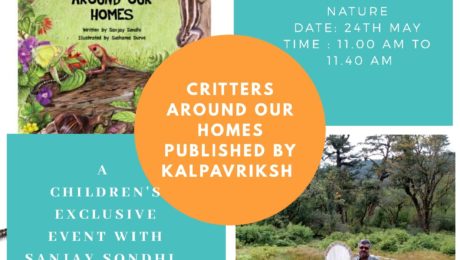Launching an interactive map on Conservation Conflicts in India
On the occasion of #WildlifeWeek the #EJAtlasteam and Kalpavriksh are launching an interactive map on Conservation Conflicts in India, which reveals the impacts of this fortress-like conservation model in India. This new map documents the violations of Wildlife laws in Protected Areas and shows the struggles of local and Indigenous communities opposing policies that exclude them from the current management of natural resources. The map reveals lack of regard for the self-determination of the communities by the government authorities.#ConflictsPAIndia
- Published in Announcements
Webinar: Community Conserved Areas in South Asia #4: Monpa Community Conservation in Arunachal Pradesh, India
Dear All,
As part of the webinar series on Community Conserved Areas organised by the ICCA South Asia Regional Coordination Committee, the next webinar will be on the Monpa communities in Arunachal Pradesh, India on 6th October at 5pm.
To register: https://zoom.us/webinar/register/WN_Kt65RLgzQkWPXd4iTDxPdA
To view on Youtube live: https://www.youtube.com/c/iccaconsortium/live
About the CCA
The Indian state of Arunachal Pradesh is located within the Himalayas Biodiversity Hotspot. Large parts of the state’s forested area (>60% accounting 3.1 million ha) are under traditional ownership of tribal communities. These forests are managed by clans, traditional village institutions and individuals. Within the West Kameng and Tawang districts of Arunachal Pradesh, the area under community custodianship is even higher. In these two districts, more than 80% of forests are de-facto under the jurisdiction of the local communities and administered by their customary laws.
The biological richness of the forests of Arunachal Pradesh are amongst the highest in the Himalayan region. The Western Arunachal Landscape, is endowed with luxuriant forests and a great diversity of plant and animal species, many of which are endemic to the Eastern Himalayas. The region is also a critical habitat for several species on the IUCN Red List such as the snow leopard, red panda, Asiatic black-bear, clouded leopard, golden cat, serow, and black-necked crane. Most of these threatened species are facing threats from habitat degradation and fragmentation, emerging developmental projects, hunting and other anthropogenic pressures.
Approximately 0.18 million people (with ~80% rural population) depend on natural resources in Arunachal Pradesh. Mostly, a traditional agro-pastoral system is followed using available natural resources. The community manages oak (Quercusgriffithii) forests around their farmland to collect fallen leaves for the purpose of mulching, and also practice mixed cropping with a combination of legumes that helps maintain soil fertility. However, the traditional dependency and relationship between the local communities and natural resources is eroding; threatened by an increase in commercial demand and a breakdown of traditional institutional mechanisms. The forests of Arunachal Pradesh face several other threats i.e. forest fires, clearing of forests for commercial agriculture, monoculture plantations, linear infrastructure and mega-hydropower development.
To address some of these challenges, the local Monpa communities of the region have mobilized themselves around the Community Conserved Area (CCA) model. The work to establish CCA in the forest areas under their jurisdiction was initiated nearly a decade and half ago and currently there are nine CCAs covering around 1500 sq. km of forest. It all began in Thembang village in West Kameng district when the local community setting up the Thembang Bapu CCA on 30 km2 of forests under their custodianship. Later, this was expanded to cover 635 km2 encompassing dense forests with snow-capped mountains and high-altitude lakes that provide a secure habitat for threatened species including the red panda and snow leopard. In order to complement and strengthen the forest conservation initiative, community-based tourism (CBT) was introduced in 2009. The CCA Management Committee in Thembang has greatly matured and operates independently. The Community Based Organization was also with a little support from WWF India able to manage and implement a project from the Department of Science and Technology, Government of India on marketing their crop produce. Community leaders and local team members from WWF-India will share insights and learning from the initial processes of CCA establishment and the journey so far.
Speakers:
Jam Tsering, Zilla Parishad Member & Secretary, Thembang Bapu Community Conserved Area.
Pema Wange Sr. Project Officer, WWF-India & Member, Thembang Bapu Community Conserved Area.
Lham Tsering Field Officer, WWF-India & Member, PangchenLakhar Community Conserved Area.
Kamal Medhi Landscape Coordinator, WAL, WWF-India.
Pijush K Dutta Lead, Community Engagement, WWF-India
To view the previous webinars:
1. Fishing Communities of Loktak Lake, Manipur by Salam Rajesh
2. Wetland Conservation in Vidharba, Maharashtra by Manish Rajankar(BNVSAM) and Shalu Kolhe
3. Van Panchayats in Uttarakhand by Malika Virdi, Rekha Rautela and Beena Nitwal
For any query or to sign up to the CCA South Asia elist, please write to [email protected]
Regards
ICCA South Regional Coordination Committee
- Published in Announcements
Book Release: The Miracle on Sunderbaag Street
Dear all,
Please see attached a poster announcing our second online event for children around one of the books that we recently published: The Miracle on Sunderbaag by Nandita da Cunha and illustrated by Priya Kuriyan.
This event is being organised in collaboration with Story Station and Katha Mehfil on October 4th at 4 pm.
Please do pass this around to children who may be interested in joining. Here is the zoom link: https://us02web.zoom.us/j/81101735979
Thanks!
- Published in Announcements
Protected Area Update, October 2020, No. 147
- Published in Announcements
CCA South Asia Webinar Series #3: Van Panchayats, Uttarakhand (22nd September, 5pm IST)
About the Talk
Village Forest Commons are a long-standing institution in Uttarakhand that pre-dates the current format of the Van Panchayats yielded by the colonial British after their regional appropriation of all lands. Like true commons, these forest and rangeland commons have been protected and used by village communities primarily to meet their subsistence needs of fuelwood, fodder and small timber as also providing the critical nutrient cycling of compost that makes hill agriculture possible at all. Though currently facing a slew of incremental measures to control and commercialize these forests they remain, wherever communities are still dependent on agriculture and pastoralism, their live support base. In such area, especially at higher altitudes village forests and rangelands are extensive, constituting over 60% of the landscape in the Gori river basin. One village forest, for instance, covers about 860 sq km, larger than the largest protected area in the state. Not surprisingly, such areas harbour wildlife and biological diversity comparable to Protected Areas in the same geographical zones.
Join us as the speakers discuss the persisting relevance of Van Panchayat in the face of the larger dismantling of Commons worldwide, the continued dependence of poorer households for their livelihoods, rapidly dwindling biological diversity everywhere and the critical the need for forests and wild spaces in the cultural and economic context.
Malika Virdi is her second term as Sarpanch, the elected head of the Sarmoli- Jainti Van Panchayat.
Rekha Rautela is a panch (elected representative) of Sarmoli Van Panchayat
Beena Nitwal is a panch (elected representative) of Sankhdhura Van Panchayat
To join the webinar: https://us02web.zoom.us/j/82247993867
View the previous webinars:
For any query or to sign up to the CCA South Asia e-list, please write to [email protected]
- Published in Announcements
New Children’s Books are here!!!
To know the details please see the brochure attached.
To place your order, write to [email protected] or visit kalpavriksh.org/our-store
- Published in Announcements
People in Conservation: Biodiversity Conservation and Livelihood Security. Vol 9, Issue 4, July 2019 to December 2019 (Hindi)
- Published in Announcements
Protected Area Update, August 2020, No. 146
- Published in Announcements
#9 Vikalp Varta: Marudam alternative learning centre, Tamil Nadu
Learning to reconnect with nature & people
Marudam Farm-School, Tiruvannamalai, TN
How can we integrate local (farmer, artisan) knowledge systems and their practitioners in learning & education?
How can communities become more resilient by contextualising education to land, nature, culture and history?
Why is spending time in nature important?
Why does education need to engage the whole body through crafts, movement and music?
Join us for an interactive session withAkila, Arun, Arunachala, Harish, Madhavan, Pachaiappan, Paripoornam, Poornima, Uma
June 20, 2020
3:30 pm – 5:30 pm IST
Zoom ID # 84114117338
(pl. excuse mistakes on the poster; it should be Marudam, and 3.30 pm, not am!).
- Published in Announcements
New publication: Ecologies of Hope and Transformation: Post-Development Alternatives from India
- Published in Announcements
Protected Area Update, June 2020, No. 145
- Published in Announcements
Thicket Tales: Shero, to the rescue…
Thicket Tales organises An Animated Storytelling session on the book ‘Shero, to the rescue’ written by Ashish Kothari and illustrated by Anusha Menon.
Do join in on 31st May, 11am on Zoom.
For details see the poster.
- Published in Announcements
Protected Area Update, April 2020, No. 144
- Published in Announcements
Thicket Tales: Learn around nature: Epi 03
Kalpavriksh Kids’ Book Reading Session…
Critters around our home : The book is a peek into the lives of some of the creatures we see in and around our homes.
Has anyone told you that a gecko can detach its tail? Or that some moths live only for a week or two?
Find out about these creatures and many more… and also join us for lively chat and discussions with the author of the book Sanjay Sondhi.
Sanjay Sondhi is a Dehradun-based naturalist and also author of numerous books and technical papers on amphibians and reptiles, birds, butterflies and moths and other Indian wildlife.
Date: 24th May Time: 11.00 AMVenue: zoomLink for the meeting https://us04web.zoom.us/j/3054248797?pwd=WmF5U204WW9temo2Y3ZEczYxQ29Kdz09
Meeting ID: 305 424 8797Password: 9fg3K1
Join our WhatsApp group for updates on more such session .
https://chat.whatsapp.com/FUXburx4cytFHr6Ho2RM0C
- Published in Announcements
Post-Everything Worlds: A Pluriversal Webinar
Thursday, May 21. Post-Everything Worlds: A Pluriversal Webinar
Thursday, May 21, from 8 to 9:30 a.m. California time,
Zoom link: https://ucsb.zoom.us/j/2295905339
Pixabay/Alexandra_Koch
Please join us for a plunge into the amazing array of alternative ideas, practices, and experiments from all over the world!
This webinar will include some of the folks associated with the visionary book Pluriverse: A Post-Development Dictionary, and scholar-activists who are working on the many worlds that are coming forward even as we endure the coronavirus crisis.
It is co-sponsored by the University of California, Santa Barbara Environmental and Climate Justice Hub, the Global Tapestry of Alternatives, and the participants in the class, The World in 2050 2025: Systemic Alternatives.
Speakers
Federico Demaria is a lecturer in ecological economics and political ecology at the University of Barcelona; as well as a member of Research & Degrowth. He is a co-author of The case for degrowth, and co-editor of Degrowth: A Vocabulary for a New Era, and Pluriverse: A Post-Development Dictionary.
Ashish Kothari, Founder-member of Indian environmental group Kalpavriksh, taught at the Indian Institute of Public Administration, coordinated India’s National Biodiversity Strategy & Action Plan process, served on Greenpeace International and India Boards, helped initiate the global ICCA Consortium. Participated in people’s movements including Narmada Bachao Andolan; helps coordinate the Vikalp Sangam and Global Tapestry of Alternatives processes and Radical Ecological Democracy network. He has (co)authored or (co)edited many books, including Churning the Earth: Making of Global India (with Aseem Shrivastava) and Alternative Futures: India Unshackled (ed., with KJ Joy).
Susan Paulson studies and teaches about gender, class, and ethnoracial systems interacting with bodies and environments. She has researched and taught in Latin America for thirty years, fifteen of those living in South America among low-income, low-impact communities. Susan currently serves as Professor at the University of Florida, and is studying changing masculinities among men who perform painful and dangerous labor in extractive industries. Her recent publications include Degrowth: culture, power and change; Pluriversal learning: pathways toward a world of many worlds; and From pandemic to care-full degrowth.
Alberto Acosta es Economista ecuatoriano. Profesor universitario. Fue ministro de Energía y Minas, presidente de la Asamblea Constituyente, candidato a la Presidencia de la República. Miembro del Grupo de Trabajo Alternativas al Desarrollo de la Fundación Rosa Luxemburg. Juez del Tribunal Internacional de los Derechos de la Naturaleza: Compañero de ruta de movimientos sociales.
Giorgos Kallis is an ecological economist from Greece. He is an ICREA Research Professor at ICTA – Universitat Autònoma de Barcelona, where he teaches political ecology. He is one of the principal advocates of the theory of degrowth.
Texts for the webinar
Ashish Kothari, Arturo Escobar, Ariel Salleh, Federico Demaria, Alberto Acosta, “Can the coronavirus save the planet?” (March 26, 2020), https://www.opendemocracy.net/en/oureconomy/can-coronavirus-save-planet/
Susan Paulson, Giacomo D’Alisa, Federico Demaria, and Giorgos Kallis with Feminisms and Degrowth Alliance, “From pandemic toward care-full degrowth” (April 30, 2020), Interface: a journal for and about social movements, https://www.interfacejournal.net/wp-content/uploads/2020/05/Paulson-et-al.pdf
Ashish Kothari, Ariel Salleh,Arturo Escobar, Federico Demaria, Alberto Acosta, co-editors. Pluriverse: A Post-Development Dictionary (New York: Columbia University Press, and Delhi: Tulika Books/AuthorsUpFront, 2019), https://www.radicalecologicaldemocracy.org/pluriverse/
Giorgos Kallis, Susan Paulson, Giacomo D’Alisa, Federico Demaria, “The case for degrowth in a time of pandemic” (May 14, 2020), https://www.opendemocracy.net/en/oureconomy/case-degrowth-time-pandemic/
- Published in Announcements

